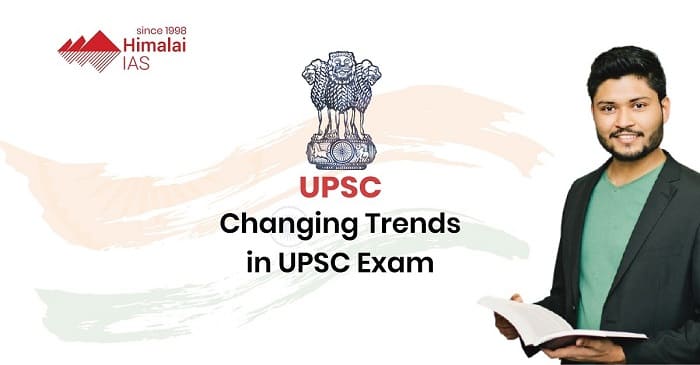One can crack the Civil Services Examination only with the right strategy, hard work, and dedication. As a UPSC aspirant, you must stay up-to-date with the exam pattern, type of questions asked, and latest trends. Your aim should not be to gain knowledge but also to clear the exam. For this, you need to follow a smart path. Be with us till the end to know everything significant about the exam.
All about the UPSC Exam
A candidate has to appear through three phases of the UPSC test, namely, UPSC Prelims, UPSC Mains, and interview. The first stage is the qualifying rounds, and the score obtained is not included in the final merit. UPSC Prelims consists of two objective-type papers, and the score of GS Paper-1 determines the cut-off. UPSC Mains is a subjective exam where one has to answer nine papers descriptively. The last round is the interview, where the candidate will get judged for their personality.
All three phases of the IAS exam require different strategies, so study accordingly. People between the ages of 21 to 32 years can appear for the exam. The authorities offer relaxations in age for numerous categories that you can check on the official website.
UPSC Exam Pattern
In this section, we will discuss the pattern of the UPSC exam.
- UPSC Prelims Exam
This exam consists of two papers:
- Paper I: General Studies
It is an MCQ-type where candidates get two hours to complete 100 questions. The maximum marks are 200, and the score gets considered for the cut-off.
- Paper-II: General Studies-II (CSAT)
In this segment, candidates have to complete 80 questions in two hours. One needs to score 33% marks to clear the exam.
- UPSC Mains Exam
Here, all nine papers are descriptive, and you get 3 hours to write each exam. Paper A and Paper B are qualifying exams where a candidate needs 33% marks out of 300. Paper I to V are compulsory subjects, and you need a good score out of 250 to get onto the merit list. Paper VI and VII are optional subjects. Select these optional subjects wisely by studying previous year trends to increase your score.
Visit the official website to know the UPSC Exam Pattern in more detail.
UPSC Exam questions and answers
Will your preparation get complete by studying textbooks and NCERTs thoroughly? No exam preparation is incomplete till you practice questions in bulk. The best is to follow the question bank for UPSC Exam in the past year’s papers. Do not just read the questions; instead, try to solve them yourself.
Practice for the subjective paper by writing the answers down and then verifying the answers. Merely reading the answers will be of no use. Attempt the past year’s papers like mock tests in a time-bound frame to get a real exam time feel. Analyzing the past year’s papers is the best way to track the changing trends and increasing difficulty level of the UPSC examination.
UPSC Exam Syllabus
The syllabus of the UPSC test is vast, and here we will try to mention the maximum possible topics. Make sure to download the UPSC exam pattern and syllabus from the official website.
- General Studies Paper-I
It includes topics like current events of National and International importance, History of India, Indian and world geography, General issues on environmental ecology, biodiversity, climate change, and Indian Polity.
2. General Studies Paper-II
Also known as CSAT, it includes topics like comprehension, logical reasoning, analytical ability, decision-making, analytical ability, problem-solving, basic numbers, data interpretation, and general mental ability.
1. Paper- I Essay
Write impressive assays on a range of topics delivering your ideas precisely.
2. Paper-II General Studies-I
This paper will contain questions from the subject Indian Heritage and Culture and history and geography of the world.
3. Paper-III General Studies-II
Topics are Governance, constitution, and politics.
4. Paper-IV General Studies-III
Topics include technology, economic development, and security.
5. Paper-V General Studies-IV
You have to study ethics, integrity, and aptitude for this section.
6. Paper-VI & VII
These are optional papers, and the syllabus is according to the subjects chosen.
Conclusion
You have to face a cut-throat performance in the UPSC Exam. To excel, follow a step-by-step study plan effectively for all subjects. Although the syllabus is vast, leaving any topic untouched is not advisable. Consistent practice will yield the desired results.
Enquire Now

